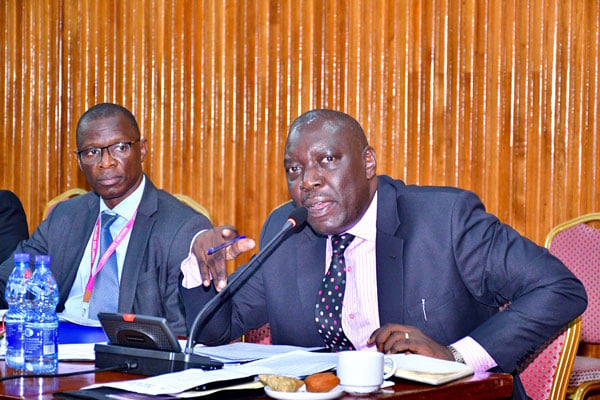Official calls for reforms in students loan scheme

Mr George Mutekanga, assistant commissioner, private schools and institutions. PHOTO/JANE NAFULA
What you need to know:
- Only students with disabilities are allowed to apply for humanities or sciences, depending on their choice.
The government should consider extending study loans to students pursuing vocational and technical courses, a senior official in the Ministry of Education has said.
Mr George Mutekanga, the assistant commissioner in-charge of private schools and institutions at the ministry asserted that the student loan scheme should not be a preserve of learners pursuing science programmes, but should instead benefit all.
Speaking at the sidelines of the signing of a memorandum of understanding between Luyanzi Institute of Technology (LIT) and Hunan Mechanical and Electrical Polytechnic (HMEP) in Kampala at the weekend, Mr Mutekanga noted that students in technical institutions too need financial support to sail through the hurdles of financing higher education.
“We are putting more effort on training students to become doctors, nurses and other scientists, but we forget about these technical institutions. We need to reconsider technical, would-be graduates, who will be a very big workforce for the country,” he advised.
The student loan scheme was introduced in 2014 by the government to enable bright but financially disadvantaged learners to access university education.
Last month, the chairperson of the governance board of the student loan scheme, the Higher Education Students Financing Board, which manages the scheme, Dr Charles Wana-Etyem, announced that a total of 1,196 beneficiaries out of 1,921 applicants would benefit during the 2023 and 2024 academic year at a cost of Shs5.2b.
He said majority of the selected beneficiaries offer health sciences programmes, followed by engineering, and information technology, science education, and other natural sciences that take the rest of the slots.
Only students with disabilities are allowed to apply for humanities or sciences, depending on their choice.
On the issue of catering to other categories of learners, Dr Wana-Etyem noted that other categories would be considered at a later stage and when finances allow.
Mr Mutekanga also recommended that the number of government-sponsored students pursuing Technical and Vocational Education and Training (TVET) be increased.
Currently, the government sponsors about 60 TVET students per institution.
Mr Ayub Sooma, the chairman of the Board of Directors of Luyanzi Institute, said the government should accord more support to technical institutions so as to accommodate and train more learners.
“We should not just be talking about skilling programmes but there should be a deliberate effort to help these tertiary institutions to get the equipment, tools, assets and facilities to be able to transform the communities,” Mr Sooma observed.
Commenting on the memorandum of understanding, he said the partnership between the two institutions will enhance the teaching of technical and vocational education training.
Mr Sooma said the two institutions will also cooperate in various areas including exchange programmes for teachers and students, research, among others.
Mr Chen Li, the vice principal of HMEP, said the partnership will see Ugandan students get diplomas in various mechanical and polytechnic courses.
Mr Fan Xuecheng, charge d’affaires of the Chinese Embassy in Uganda, said practical training is key in job creation.



